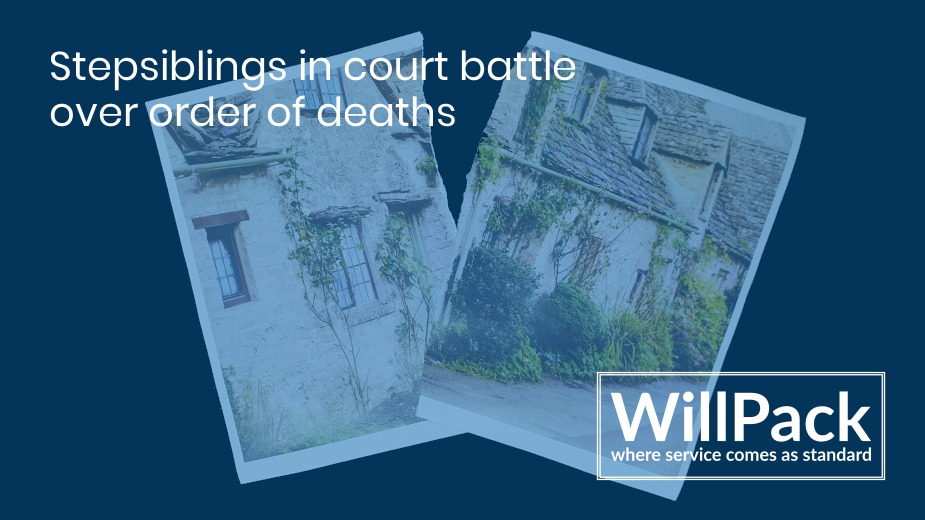This week an interesting family dispute has come to light concerning an issue with determining the order of a couple’s deaths after they both tragically died of hypothermia. Below we will look at how the law normally treats people who die together when it can’t be determined who died first, consider the impact of this in this particular case and note our own comments on this.
The Law Regarding Order of Deaths
S184 Law of Property Act 1925 states that if two or more people die in circumstances where it is uncertain which of them survived the other, it is presumed they died in order of seniority with the younger persons deemed to have survived the older. This is known as the Commorientes Rule.
The Facts
John Scarle (79) and Ann Scarle (69) were found at their home in October 2016 after their worried neighbours had not seen them for a number of days and contacted the police. Both died of hypothermia.
Both Mr and Mrs Scarle had children from previous marriages and the uncertain order of the deaths has lead to a case at the High Court between the two sets of family to determine which of them died first in order to work out which family will inherit the property.
If Mr Scarle is seen as dying first, his share of the property would pass to Mrs Scarle and then the whole property would pass to her two children. If Mrs Scarle is treated as dying first, her share of the property would pass to Mr Scarle and then the whole property would pass to his daughter. In either event, one side of the family would miss out from the property entirely.
Mr Scarle’s daughter is arguing that Mrs Scarle most likely died first as the state of her body when the police found the couple suggested that she had died first, whereas Mrs Scarle’s daughter is arguing that the order of deaths cannot be determined and the presumption under S184 should apply.
The judge will determine the outcome at a later date.
Comment
This case unfortunately is a perfect example of what can happen without wills where there are children from previous relationships or where wills are not structured correctly.
If the will is structured in such a way that assets pass to the surviving partner outright and then each to their own families, this will leave a situation where one side of the family will always miss out on an inheritance.
The struggles between the two sides of the family can easily be avoided, either with wills that have a second death distribution that is mirrored in both wills, in which both sides of the family inherit, or alternatively by placing assets into trust rather than passing to the surviving spouse or partner outright.
Due to the contentious nature of this, we will not draft wills for a couple where they are leaving assets to each other but wish to then have different beneficiaries on the second death.


 © Trust Wills & Probate Limited t/a WillPack. All rights reserved.
© Trust Wills & Probate Limited t/a WillPack. All rights reserved.
4 comments
David Heilbronn
28 June 2019 at 11:16 am
I am very surprised to find Will Pack do not wish to draft wills for couples leaving their estate to different parties. In my experience I meet many clients who have been married previously and wish to leave their share of t he estate to their own side of their family.
Chris Smith
28 June 2019 at 11:33 am
Hi David
Our concerns is where clients wish to leave their estates to each other outright but then have completely different distributions on second death (e.g. the wife leaving all assets to her husband and then her children and the husband leaving everything to his wife and then his children). This causes a situation similar to the above where dependent on the order of deaths between the husband and wife one side of the family will completely miss out on an inheritance.
Our solution to this would be to either have a second death distribution in the wills that is mirrored, for example splitting the second death estate 50:50, with one half to the wife’s family and one half to the husband’s or alternatively to consider the use of trusts to benefit the surviving spouse but ensure that their own individual children inherit on second death.
Vass Koni
28 June 2019 at 11:33 am
@David Heilbron Leaving their “share” of the estate to different sides of the family is not the same as leaving the whole estate to different beneficiaries. Your situation implies a severance of title and proportional allocation of assets. There is nothing wrong with this. Presumably some trust advice will be included.
Pingback: Uses of Trusts That You Might Not Have Thought Of: Part Six — WillPack
Comments are closed.